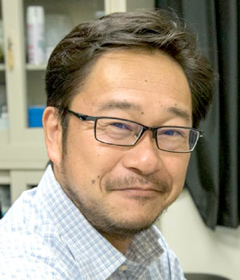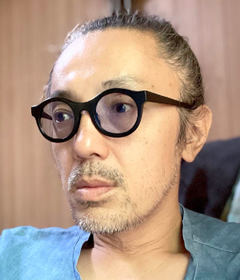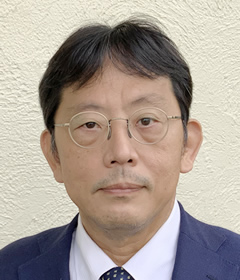Grant-in-Aid for Transformative Research Areas (A)
- Diorama Behavior Team (A01-1)
- Diorama Behavior Team (A01-2)
- Diorama Production Team (A02-1)
- Diorama Production Team (A02-2)
- Mechanical Modeling Team (B01-1)
- Mechanical Modeling Team (B01-2)
- Algorithm Evaluation Team (B02-1)
- Algorithm Evaluation Team (B02-2)
Diorama Behavior Team (A01-2)
This team leaders are Dr. Shikata, who is investigating the diurnal vertical migration of harmful red tide algae in Diorama and Panoramic environments, and Dr. Shiba, who is studying the flagellar motion of sperm as they change direction toward the egg. They are responsible for supplying experimental data to other groups, as needed.
Response measurement and regulatory mechanism of sperm chemotaxis in Diorama environments
The sperm is a single cell with the important task as fertilization. To reach the egg sperm shows various responses such as chemotaxis, reotaxis and thermotaxis by using their‘proto-intelligence’. In this research we focus on sperm chemotaxis and measure the sperm response including sperm swimming trajectories, flagellar motility and intracellular signaling. We aim to understand the regulatory mechanism required for the skillful behavior, motor activity and adaptation of sperm through the analysis and measurement under Diorama environments.
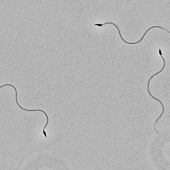
Sperm flagllar waves in the ascidian
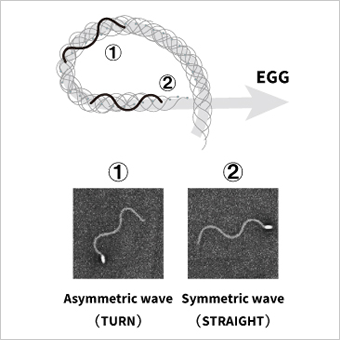
Changes in sperm flagellar waveforms during chemotactic turn
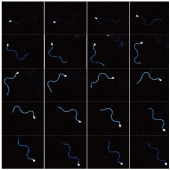
Intraflagellar calcium ion imaging in the ascidian sperm
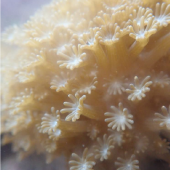
Sperm spawning in coral
Diorama Behavior Team (A01-2)
member
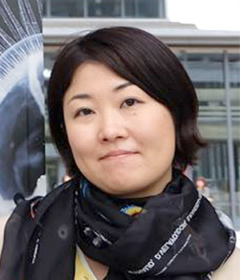
Shimoda Marine Research Center, University of Tsukuba
Assistant Professor Kogiku Shiba
D. in Animal Physiology (Cell motility) from Ochanomizu University in 2005.
Postdoctoral Fellow, Misaki Marine Biological Station, The University of Tokyo, 2005-2009.
Postdoctoral Fellow, Shimoda Marine Research Center, University of Tsukuba, 2009.
Assistant Professor, Shimoda Marine Research Center, 2009-present.
Research Areas: Cell biology, Marine biology, Reproductive biology.
 Ethological dynamics in diorama environments
Ethological dynamics in diorama environments